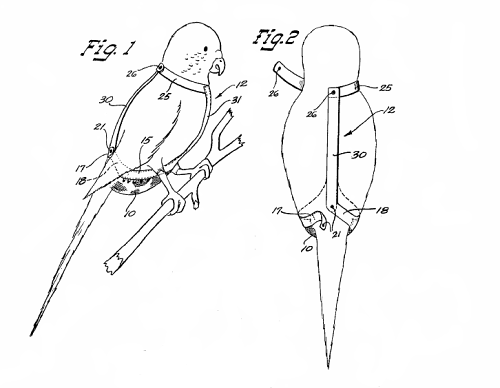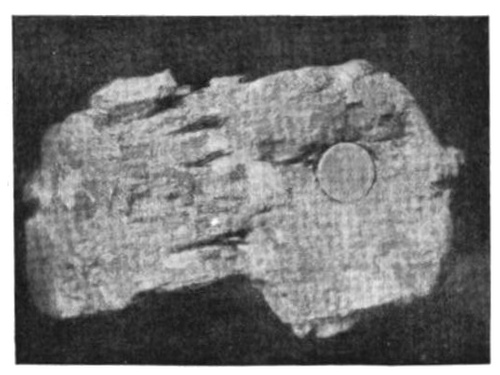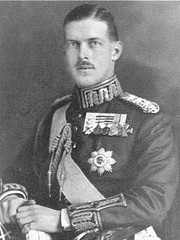12 × 42 = 24 × 21
12 × 63 = 36 × 21
12 × 84 = 48 × 21
13 × 62 = 26 × 31
23 × 96 = 69 × 32
24 × 63 = 36 × 42
24 × 84 = 48 × 42
26 × 93 = 39 × 62
36 × 84 = 48 × 63
46 × 96 = 69 × 64
14 × 82 = 28 × 41
23 × 64 = 46 × 32
34 × 86 = 68 × 43
13 × 93 = 39 × 31
Bird Diapers

You know, bird diapers. What more is there to say?
Bertha Dlugi’s invention, patented in 1959, was intended for parakeets and other birds that are allowed to fly freely about the house. “It is … a general object of the present invention to provide a garment to be worn by birds for receiving their excremental discharge to prevent it from being deposited on household furnishings when the bird is at liberty in the home and thereby avoid the consequent unsanitary condition.”
Good idea — but it’s twice the mess if the cat catches it.
“Coincidence”
In Detroit, year ago, Street Sweeper Joseph Figlock was furbishing up an alley when a baby plopped down from a fourth-story window, struck him on the head and shoulders, injured Joseph Figlock and itself but was not killed. Last fortnight, as Joseph Figlock was sweeping out another alley, two-year-old David Thomas fell from a fourth-story window, landed on ubiquitous Mr. Figlock with the same results.
– Time, Oct. 17, 1938
Wire Act
Performing in Kid Boots in Chicago, Eddie Cantor received a 12-page telegram from Florenz Ziegfeld with suggestions for improving the show. “The whole message [was] such a jumble of ideas” that Cantor simply responded:
YES.
Ziegfeld wrote back:
WHAT DO YOU MEAN YES? DO YOU MEAN YES YOU WILL TAKE OUT THE SONG OR YES YOU WILL PUT IN THE LINES OR YES YOU WILL FIX THAT SCENE OR YES YOU HAVE TALKED TO THOSE ACTORS?
Cantor responded:
NO.
Unquote
“Medicine makes people ill, mathematics makes them sad, and theology makes them sinful.” — Martin Luther
“How Did It Get There?”

From The Strand, April 1901. R.C. Hardman of Meadhurst, Uppingham, ordered a ton of coal and found a coin dated 1397 embedded in one lump.
If there’s an explanation for this, I can’t find it.
In a Word
hallelujatic
adj. containing hallelujahs
Bereft
If this should meet the eye of Emma D—–, who absented herself last Wednesday from her father’s house, she is implored to return, when she will be received with undiminished affection by her almost heart-broken parents. If nothing can persuade her to listen to their joint appeal–should she be determined to bring their gray hairs with sorrow to the grave–should she never mean to revisit a home where she had passed so many happy years–it is at least expected, if she be not totally lost to all sense of propriety, that she will, without a moment’s further delay, send back the key of the tea-caddy.
– Advertisement, London newspaper, quoted in Jefferson Saunders, The Tin Trumpet, 1836
Darwin’s Revenge

Some kings expire in bed. Some die gloriously in battle.
Alexander of Greece was bitten to death by monkeys.
He was walking in the royal garden in October 1920 when a monkey attacked his dog. He fought it off with a stick, suffering only a wound on the hand, but the monkey’s mate rushed in and gave him a much more severe bite. He died of blood poisoning three weeks later.
Alexander’s exiled father returned and led the nation into a bloody war with Turkey. “It is perhaps no exaggeration,” wrote Winston Churchill, “to remark that a quarter of a million persons died of this monkey’s bite.”
Immortal Truth
In Scripta Mathematica, March 1955, Pedro A. Pisa offers an unkillably valid equation:
123789 + 561945 + 642864 = 242868 + 323787 + 761943
Hack away at its terms, from either end, and it remains true:

Stab it in the heart, removing the two center digits from each term, and it still balances:
1289 + 5645 + 6464 = 2468 + 3287 + 7643
Do this again and it still balances:
19 + 55 + 64 = 28 + 37 + 73
Most amazing: You can square every term above, in every equation, and they’ll all remain true.
12/03/2016 UPDATE: Reader Jean-Claude Georges discovered that the equalities remain valid when any combination of digits is removed consistently across terms. For example, starting from
123789 + 561945 + 642864 == 242868 + 323787 + 761943,
removing the 1st, 3rd and 5th digit from each number:
x2x7x9 + x6x9x5 + x4x8x4 == x4x8x8 + x2x7x7 + x6x9x3
gives
279 + 695 + 484 = 488 + 277 + 693 (= 1458)
and squaring each term gives
2792 + 6952 + 4842 = 4882 + 2772 + 6932 (=795122).
Amazingly, the same is true for any combination — for example, the equations remain valid when the 1st, 2nd, 4th, and 6th digits of each term are removed. (Thanks, Jean-Claude.)
